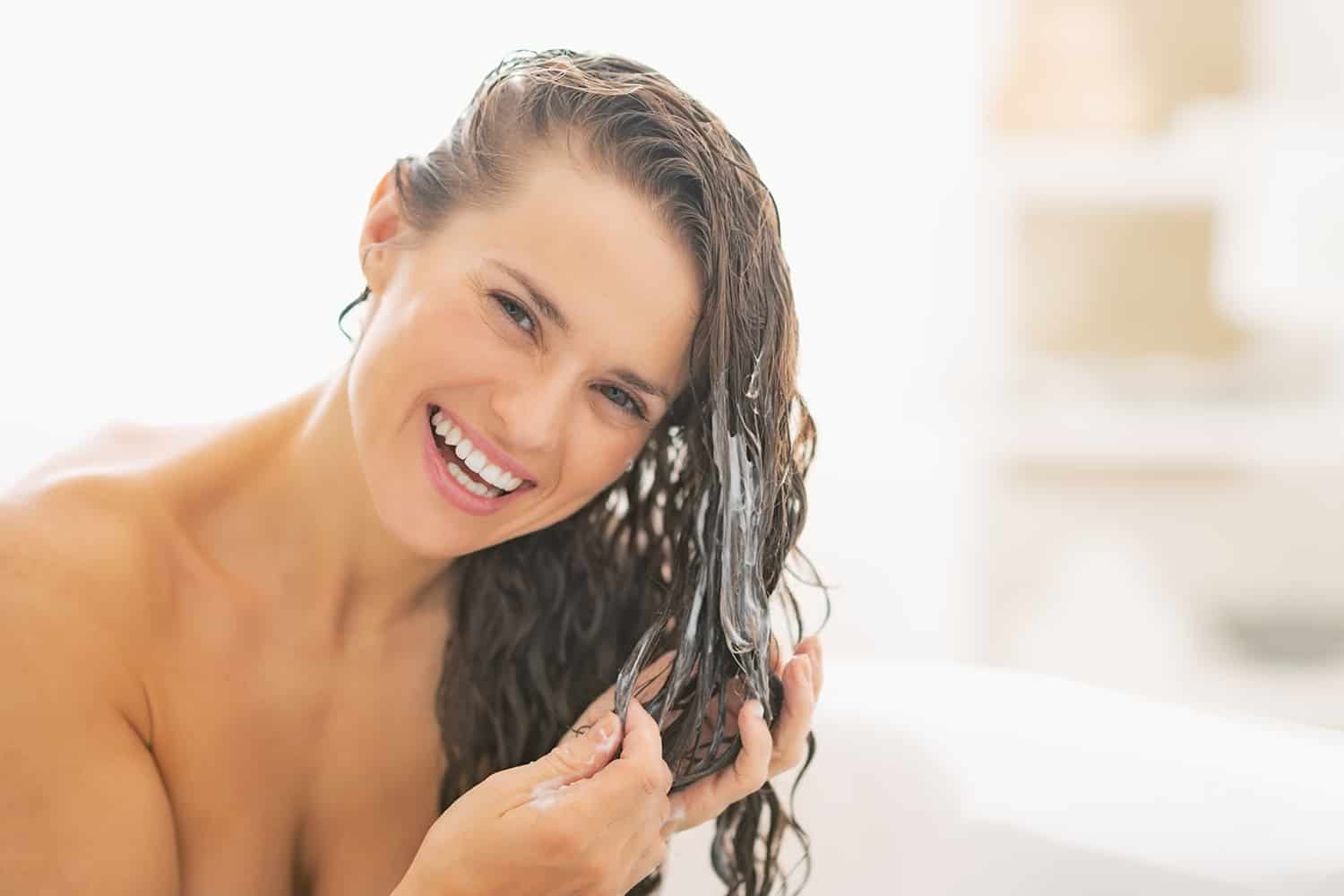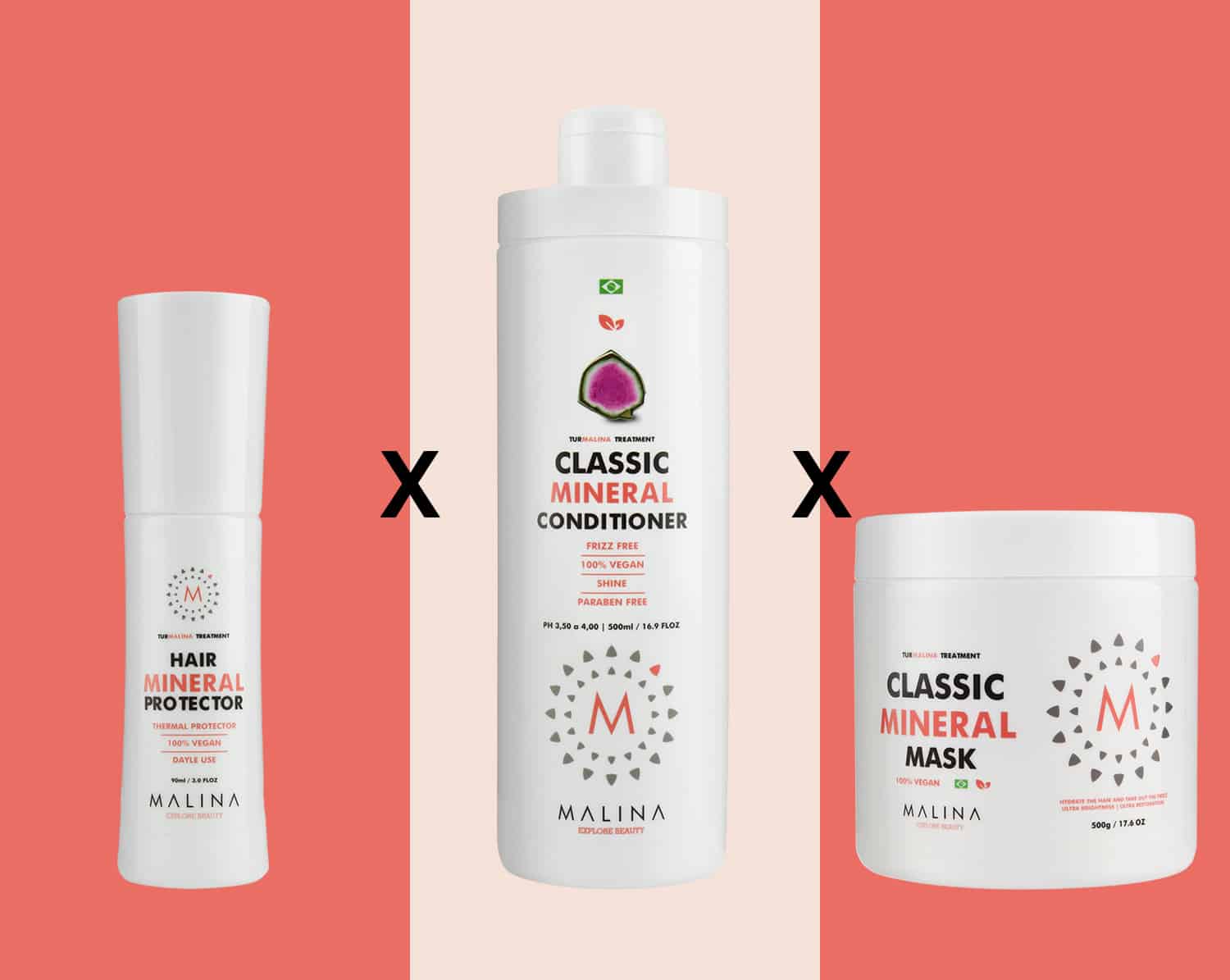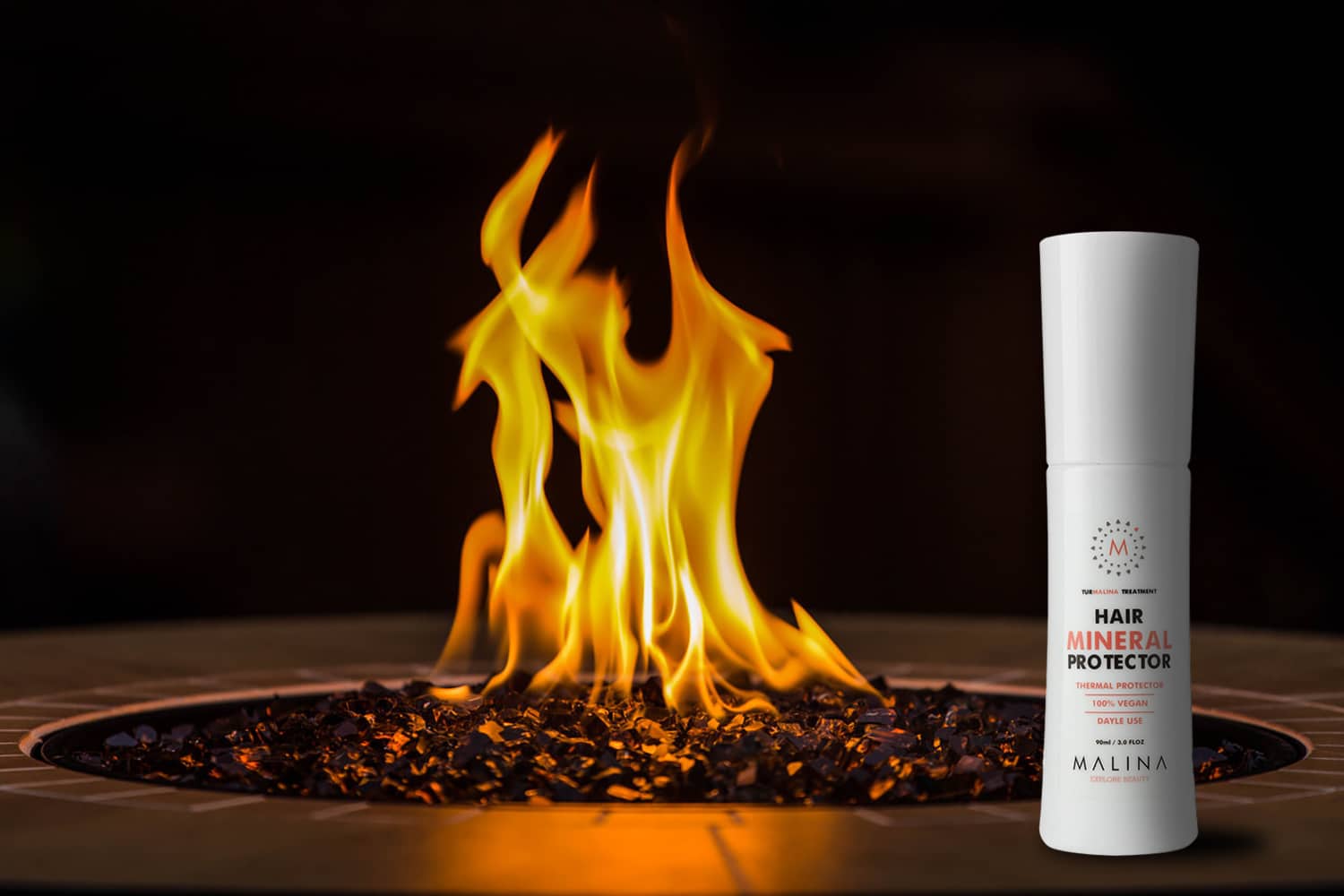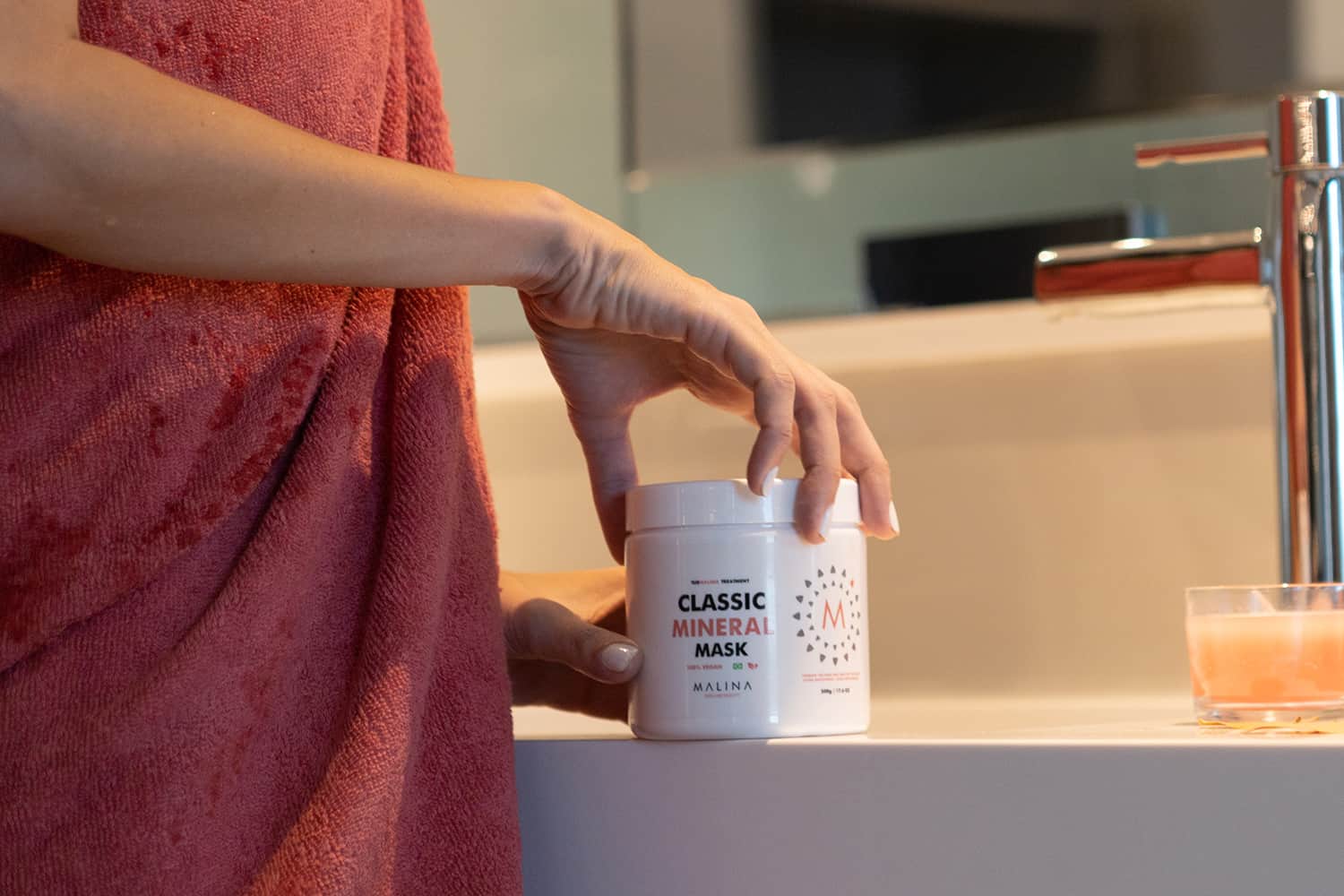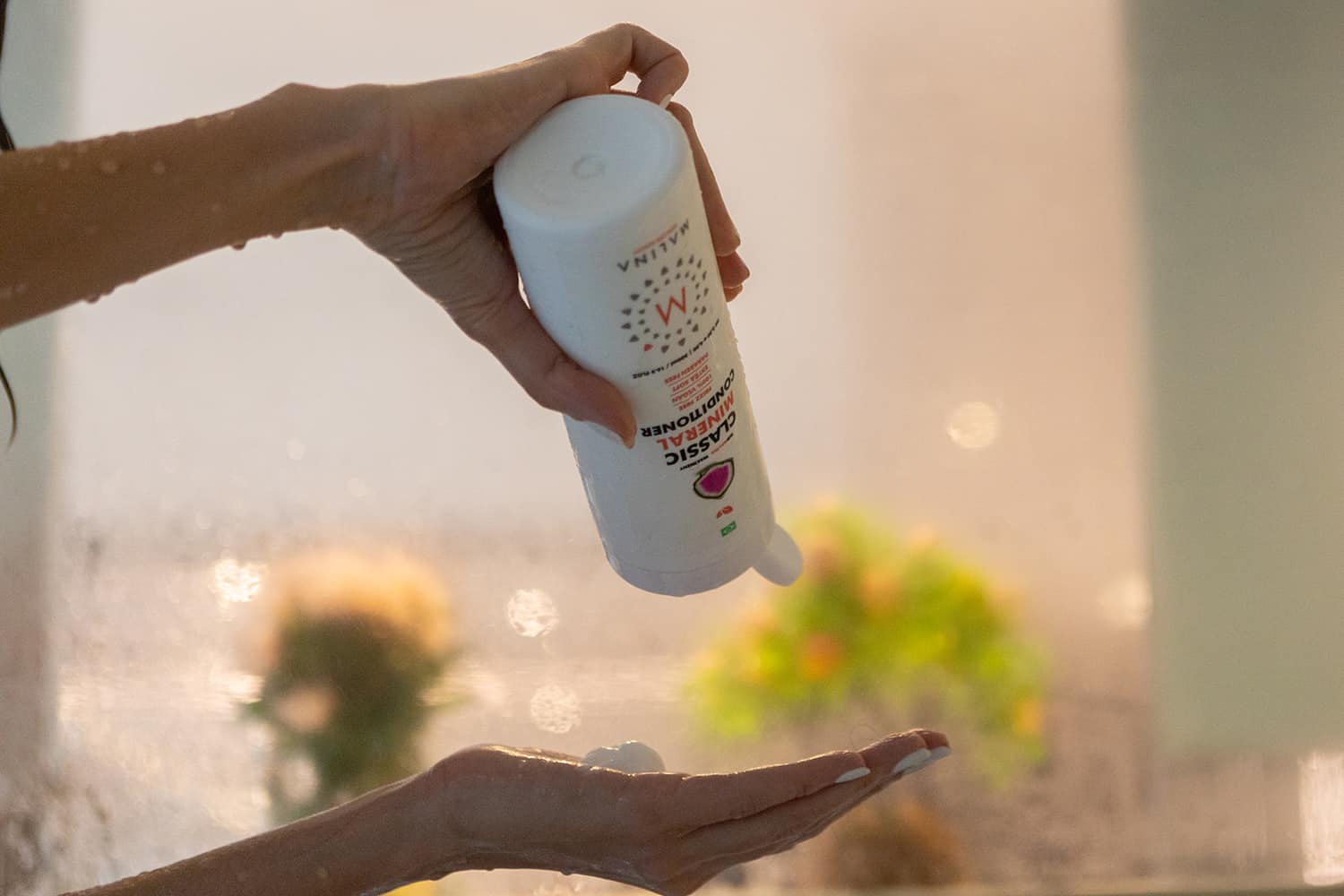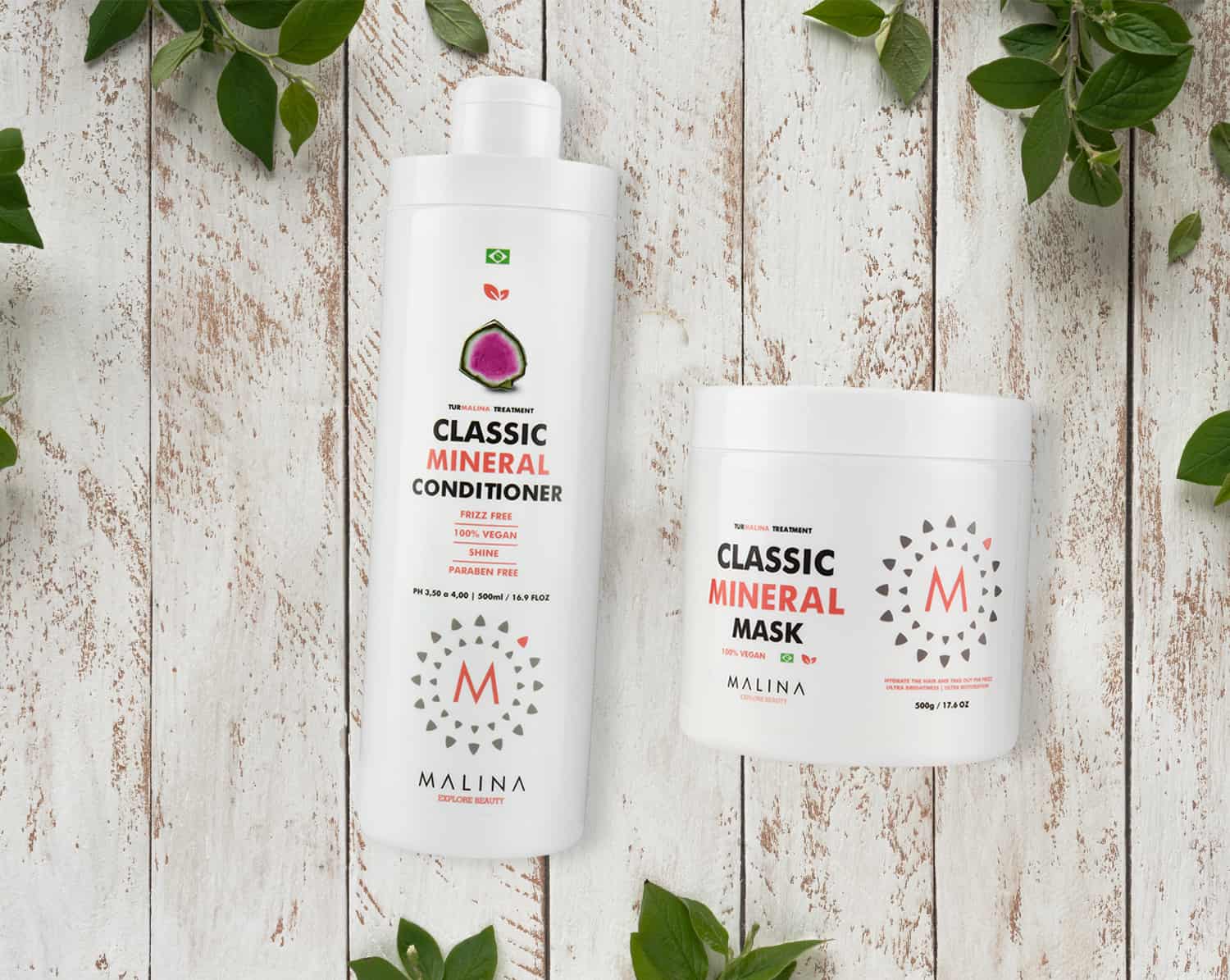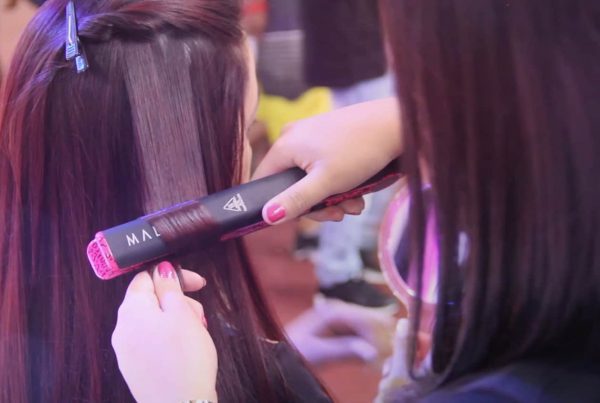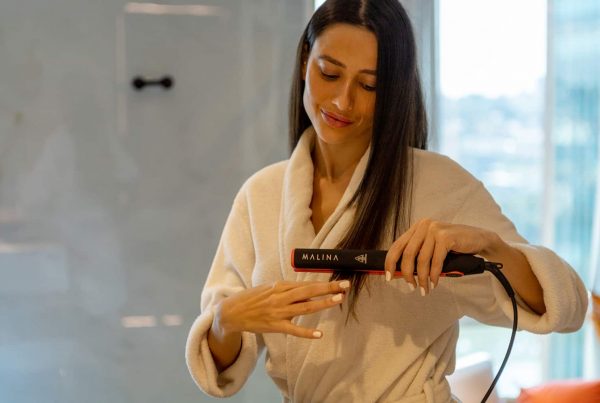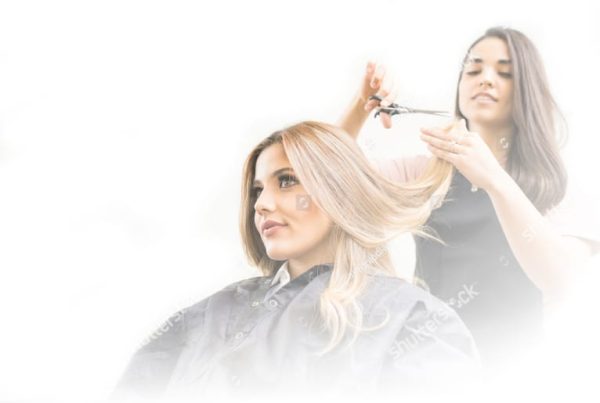If you’ve been keeping up with the hair growth forums, blogs, and internet posts for any length of time at all, you’ve no doubt heard countless warnings about how heat styling can be hazardous to your hair’s health.
While everyone knows that an iron or blow dryer can fry your locks, many people have no idea that applying heat to their hair in this way can actually damage its cuticle. In fact, using too much blow dryer heat to style your hair is one of the most common causes of split ends.
Split ends mean that the protective outer layer of your strands has started to deteriorate due to excessive exposure caused by too much combing or brushing. Moreover, those exposed cuticles expose not only more protein but also more moisture, which can lead to breakage and dullness.
This is where Malina’s heat styling tools outshine the competition. Our straighteners offer temperature control and Titanium plates, ensuring you can keep your hair healthy with even, controlled heat as you style!
Regardless of the heat styling tools you use, it’s also important to deep condition whenever you use heat on your hair. Even if you’re using high-quality vegan hair care products, you need protection when you apply heat!
Even if you’re using a flat iron, curling iron, blow dryer, hair straightener to curl hair, and so on most days of the week (which we strongly advise against), you should still be using a deep conditioner on those natural curls regularly because they’ll dry out and get damaged even after just one use, especially if you don’t use a heat protectant.
Learn more about how to deep condition hair here.
That’s why we decided to write this post: to give you some basic knowledge that will help you get more out of deep conditioning your hair and achieve great results.
By the end of this article, not only will it be clearer why some people say that they don’t see much difference between deep conditioners and regular conditioners; you’ll also know exactly why some people believe that deep conditioning is the only real way to make your hair look great.
As always, feel free to send us a message with any questions or comments you might have about this information below!
Heat Protectants vs Deep Conditioners vs Regular Conditioners
Heat protectants, deep conditioners, and regular conditioners can all be great for your hair, but they aren’t all the same thing. Here’s how each one stacks up next to one another:
Heat Protectants for Your Hair Shaft
While heat protectant products often include some degree of moisture or conditioning ingredients, their main purpose is to form a barrier between your strands and damaging sources of heat.
Dry hair (due to being exposed to too much heat) won’t have as much protection against the elements as it should, which means that you’ll need to supplement with a product like this every time you straighten your hair.
It also helps to keep in mind that most hair types will benefit from having one of these products in their routine, even those that don’t use heat frequently or at all.
Why?
Because whether you realize it or not, the sun and other environmental factors can damage your hair just as much as a heat styling tool can—heat protectants prevent this from happening by creating an invisible shield that will help minimize the effects of directly exposing hair to environmental stressors.
We recommend the Malina Hair Protector for additional defense against heat styling damage.
Deep Conditioner for Deep Conditioning
Most deep conditioners are made with hydrating ingredients like natural oils, which help to lock moisture into your strands when they’re applied regularly.
Don’t be afraid of having oily hair! The right oils soften hair and keep hair soft when added to a hair care routine.
It’s important to note that most people find deep conditioners less necessary than regular conditioners because their main purpose is simply to moisturize hair (which a basic conditioner can do as well).
However, if you use heat on your hair a lot – or if your strands are damaged due to having been exposed to the elements for an extended period of time – deep conditioning is absolutely necessary for protecting those strands from hair breakage and restoring moisture.
We recommend the Malina Classic Mineral Mask for deep, restorative conditioning.
Regular Conditioners
Regular conditioners mainly serve to detangle strands and add moisture. They’re often made with key ingredients like panthenol (which helps repair dryness), hydrolyzed keratin (which acts as a humectant), and hydrolyzed wheat protein (which promotes strength).
Again, while these key ingredients can definitely benefit some individuals, especially those who don’t need some extra protection against heat or environmental stressors, regular conditioning won’t be as beneficial for others.
Additionally, many people find that regular conditioners or store-bought deep conditioners aren’t quite as effective at getting rid of tangles as a tourmaline-infused conditioner like Malina, which is why we recommend using the latter in place of the former whenever possible.
However, if you do decide to use regular conditioner on your hair (whether in place of a deep conditioning treatment or not), it’s important to only do so with damp hair. This will prevent the formula from being softened by water and make it more likely to get trapped inside strands—which will help detangle them even though moisture isn’t actually added.
We recommend the Malina Classic Mineral Conditioner.
Deep Conditioning Frequency
If you’re wondering how often you should deep condition your hair, keep in mind that once every one month is probably long enough for most women; but some may need to do it even more frequently than that, especially if they have damaged or extremely dry hair.
Read the Instructions
If you choose to use a deep conditioning treatment on your hair regularly (whether you need one or not), don’t deviate from the product’s instructions—doing so could actually cause more harm than good by allowing ingredients to become softer and more likely to be removed from the formula by water.
Maintain Hair Elasticity and Retain Hair’s Moisture
If you’re curious about how often you should deep condition, remember that doing so too regularly can actually cause more harm than good by making hair heavier, more prone to tangling, and just plain greasy/dirty looking!
Too much regular deep conditioning can result in weak hair. While the deep treatment is meant to repair hair damage from chemically treated or overprocessing, you can improve hair elasticity and achieve healthier hair if you properly deep condition without overdoing it!
So plan ahead when deciding when to deep condition—especially if you have to wash your hair regularly.
Deep Conditioning Frequency by Hair Type
If you do have thin and/or fine hair, however, it tends to get weighed down easily by product as well as natural oils produced by the scalp (especially when you’re not deep conditioning). This means that most people with this type of hair should probably only condition their strands once every one or two weeks.
However, those with thick hair may be able to go even longer without needing a deep conditioning treatment. However, we do recommend using them on occasion if you want noticeably thicker-looking strands. We also recommend doing so if your hairstyle involves heat application.
Whether or not you use regular conditioner on your hair, remember that deep conditioning treatments can help replenish lost moisture and add bounce back to strands. And whether you need one or not, doing so will also give your hair a fresh look while helping to soften it.
Ingredients to Look for in Your Deep Conditioning Products
Regardless of your hair type, deep conditioner can enhance your straight, wavy, or curly hair. Frizzy hair, in particular, really stands to benefit from a deep conditioner more than a normal conditioner.
Whether you choose a Malina hair mask, Malina deep conditioner, or homemade deep conditioners to deep condition your hair, be on the lookout for these fabulous deep conditioner ingredients:
Shea Butter for Your Hair Shaft
Shea butter is a great moisturizer because it mimics the sebum (natural oil) your scalp produces. It contains vitamin C and fatty acids that heal dry, brittle hair and makes it softer.
The only issue with shea butter products is that they are best absorbed when rubbed into damp hair before washing out. They can leave residue on hair if you don’t take this extra step.
Coconut Oil in Your Hair Mask
Coconut oil also has amazing deep conditioning properties, despite being solid at room temperature. It’s very rich in fatty acids that mimic your natural oils and ease split ends by repairing surface damage to the hair strand.
Our deep conditioning hair masks already have the right amount of coconut oil in them along with other beneficial ingredients like Argan oil, hazelnut oil, and macadamia oil.
Argan Oil for Deep Conditioner Hair Treatments
Argan oil can help promote hair growth because it helps repair split ends and rebuild damaged areas of your strands.
It’s also ideal for deep conditioner treatments because it is high in vitamin E and essential fatty acids that make hair stronger. This oil also tames frizz by sealing the hair cuticle, leaving your strands smooth and shiny.
Hazelnut Oil Transforms Dry Hair into Healthy Hair
Regardless of your hair type, hazelnut oil will transform you from dry and damaged hair into soft, healthy hair. It locks in moisture by increasing the number of fats on your strands making them stronger.
The oil is rich in vitamin E that prevents split ends and reduces frizziness. Coconut oil also contains this amazing ingredient, but hazelnut is even creamier than coconut oil so it treats hair more effectively.
Macadamia Oil to Deep Condition Your Hair
If you have fine or thinning hair, macadamia oil is a must-have in your regimen to grow those strands out and prevent further loss. It’s rich in vitamin E and essential fatty acids that strengthen the hair shaft.
Macadamia oil also contains palmitoleic acid that keeps your hair moisturized and prevents breakage!
Olive Oil in Deep Conditioner Products
Olive oil can be used as a key ingredient in deep conditioners. The oil is an excellent moisturizer that helps to seal the hair cuticles, leaving the hair feeling silky and smooth.
Olive oil also contains many antioxidants, which repair damaged hair, promoting shine. Also, olive oil has been shown to stimulate the growth of new hair cells.
Concluding on Deep Conditioning Hair
If you want to grow your hair longer, condition it more often. The right deep conditioning product applied to your hair will make all the difference in how much volume and bounce your hair has!
A good deep conditioner treatment can also leave your strands feeling healthier and stronger. While regular conditioners only apply moisture to the outer layer of your hair shaft, deep conditioners go deeper to repair the inner layers of your strands.
Our Malina hair mask and deep conditioner products contain all the necessary ingredients to transform you from dry, frizzy, or damaged hair into healthy, strong, moisturized locks!
Explore beauty from Brazil with Malina now.

